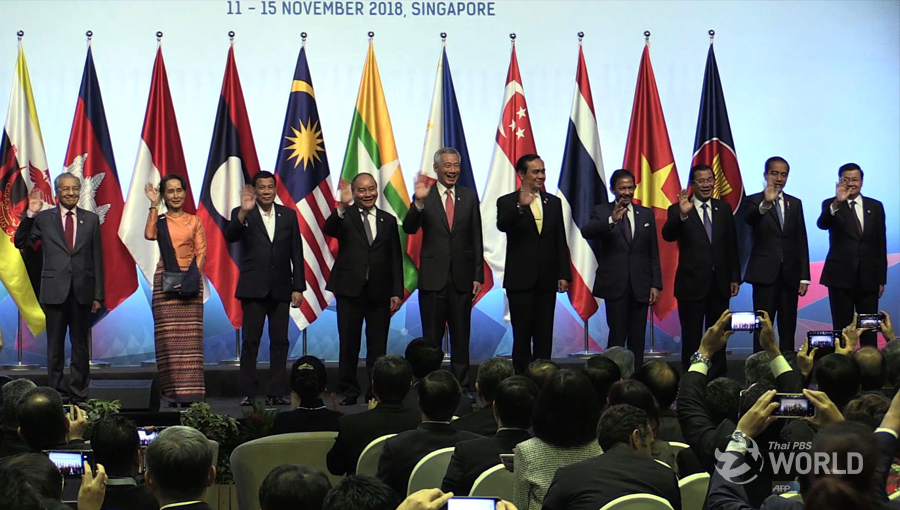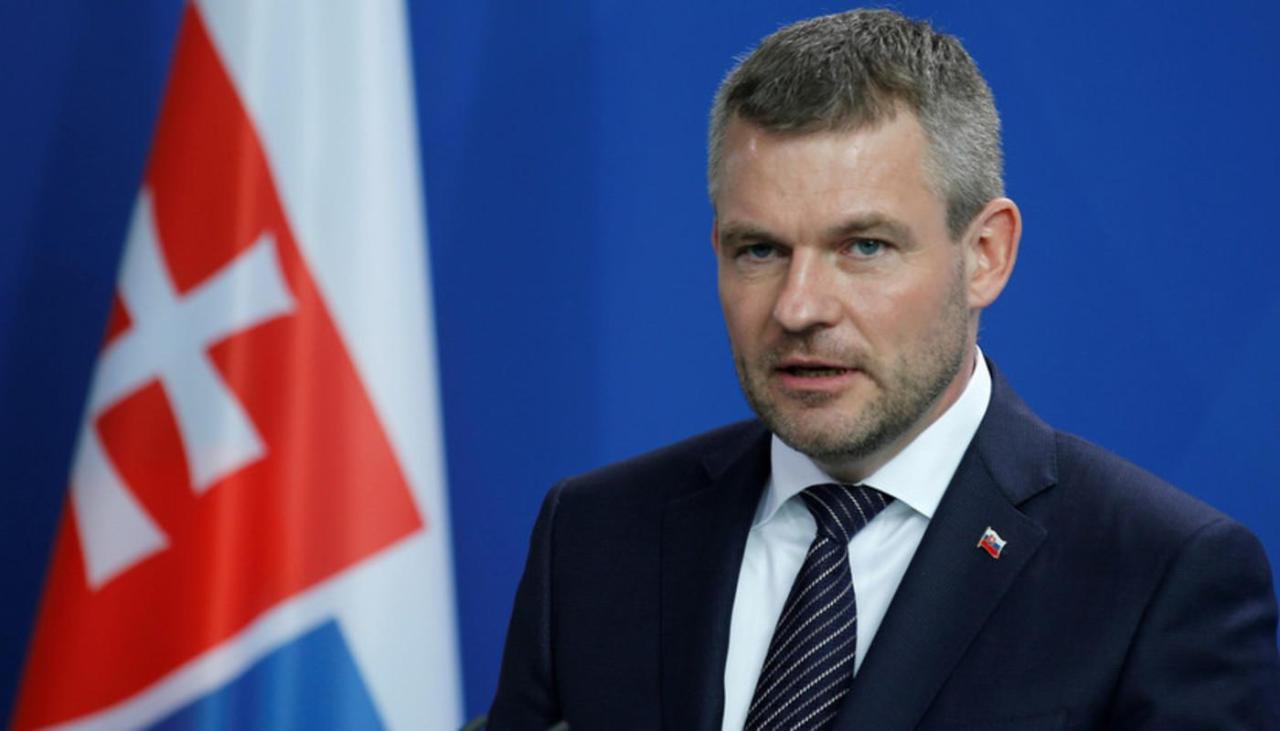EurActiv (13 November 2018)
The European Council will consider in December the outcomes of the citizen consultations. However, some MEPs are already calling for the EU not to stop at this experiment. EURACTIV France reports.
European heads of state and government will meet in Brussels for the European Council on 13 and 14 December. On this occasion, they will have summaries of European citizen consultations held in their countries to hand.
However, the exercise, which took place between April and September and consisted of 1,076 events, is also of interest to another audience.
“In the course of a few months, you have brought together a list of grievances for the 21st century which has to serve as a basis for our work as legislators,” explained Richard Ferrand, president of the French National Assembly. “It’s high time that we talked about Europe in this house.”
On Thursday (8 November), the National Assembly’s committee for European affairs, chaired by Sabine Thillaye, organised an international meeting of parliamentarians to revisit these consultations.
The people facing their representatives
“Participatory and representative democracy complement and strengthen each other,” stated Nathalie Loiseau, minister for European affairs, in a pre-emptive response to the usual criticisms of this exercise.
Namely, that if the European Union needs to invest so many resources in obtaining its citizens’ opinions and concerns, this means the European Parliament is not fully performing its representation role.
There was no pro-EU bias during the debates, according to the minister.
“There were not only pro-Europeans at the 54 debates I participated in, but sometimes very sceptical points of view.” Indeed, the effort required to participate in these events (which sometimes comprised several days of debate), perhaps had a tendency to exclude completely Eurosceptic people.
One of the three French MEPs present at Hôtel de Lassay, which is adjacent to the French National Assembly, Christine Revault d’Allones Bonnefoy (S&D), did believe that “real Eurosceptics didn’t come to these debates.”
Their absence in the citizen consultations’ public debate will have to be taken into account with a view to the May 2019 European elections.
An ill wind
“We have to stop the binary discourse of the saviour against horror, of progressives against anti-Europeans. That’s not how you fight populism,” the S&D MEP warned. Instead, she called for calm and serious discussions to be held between people who have different visions of the European project but who still support it.
“There is an ill wind blowing across the EU, we have to work together because the European project is in danger,” warned Pascal Durand, vice-chair of the Greens Group at the European Parliament.
This is what the citizen consultations are for, to truly take popular opinion into account. “Let’s not make the same mistake as we did with the European Citizens’ Initiative (ECI), which did not create momentum. Nothing would be worse than leaving it at that.”
Established by the Lisbon treaty with the intention of giving political weight to citizens’ petitions, the ECIs met with little success.
Not stopping there
A report co-authored by Austria, the holder of the EU presidency until December, and Romania, which takes over on 1 January 2019, will be presented to the heads of state before the European Council on 13 and 14 December.
The report will be “essential for defining the European strategic agenda,” said Michael Linhart, the Austrian ambassador to France. “It is important to consider that this isn’t a closed chapter. We have to monitor these consultations and continue to do so.”
In just over a month, at the close of the European Council in Brussels, it will be possible to determine whether this exercise in participatory democracy has really influenced the European debate.
No comments yet.
- GERMAN GDP DROPS FOR FIRST TIME SINCE 2015 Europe - EU 14.11.2018
-
 MYANMAR’S ASEAN NEIGHBORS TO CALL FOR ‘ACCOUNTABILITY’ IN RAKHINE CRISIS
Asia - Pacific
14.11.2018
MYANMAR’S ASEAN NEIGHBORS TO CALL FOR ‘ACCOUNTABILITY’ IN RAKHINE CRISIS
Asia - Pacific
14.11.2018
- CHINESE PREMIER LI SAYS HOPES FOR SOUTH CHINA SEA CODE IN THREE YEARS Asia - Pacific 14.11.2018
- MERKEL CALLS FOR 'REAL, TRUE' EU ARMY Europe - EU 14.11.2018
-
 SLOVAK PM DISCLOSES PRIORITY AREAS FOR CO-OP WITH AZERBAIJAN
The Caucasus and Turkish-Armenian Relations
14.11.2018
SLOVAK PM DISCLOSES PRIORITY AREAS FOR CO-OP WITH AZERBAIJAN
The Caucasus and Turkish-Armenian Relations
14.11.2018
-
25.01.2016
THE ARMENIAN QUESTION - BASIC KNOWLEDGE AND DOCUMENTATION -
12.06.2024
THE TRUTH WILL OUT -
27.03.2023
RADİKAL ERMENİ UNSURLARCA GERÇEKLEŞTİRİLEN MEZALİMLER VE VANDALİZM -
17.03.2023
PATRIOTISM PERVERTED -
23.02.2023
MEN ARE LIKE THAT -
03.02.2023
BAKÜ-TİFLİS-CEYHAN BORU HATTININ YAŞANAN TARİHİ -
16.12.2022
INTERNATIONAL SCHOLARS ON THE EVENTS OF 1915 -
07.12.2022
FAKE PHOTOS AND THE ARMENIAN PROPAGANDA -
07.12.2022
ERMENİ PROPAGANDASI VE SAHTE RESİMLER -
01.01.2022
A Letter From Japan - Strategically Mum: The Silence of the Armenians -
01.01.2022
Japonya'dan Bir Mektup - Stratejik Suskunluk: Ermenilerin Sessizliği -
03.06.2020
Anastas Mikoyan: Confessions of an Armenian Bolshevik -
08.04.2020
Sovyet Sonrası Ukrayna’da Devlet, Toplum ve Siyaset - Değişen Dinamikler, Dönüşen Kimlikler -
12.06.2018
Ermeni Sorunuyla İlgili İngiliz Belgeleri (1912-1923) - British Documents on Armenian Question (1912-1923) -
02.12.2016
Turkish-Russian Academics: A Historical Study on the Caucasus -
01.07.2016
Gürcistan'daki Müslüman Topluluklar: Azınlık Hakları, Kimlik, Siyaset -
10.03.2016
Armenian Diaspora: Diaspora, State and the Imagination of the Republic of Armenia -
24.01.2016
ERMENİ SORUNU - TEMEL BİLGİ VE BELGELER (2. BASKI)
-
AVİM Conference Hall 24.01.2023
CONFERENCE TITLED “HUNGARY’S PERSPECTIVES ON THE TURKIC WORLD"









